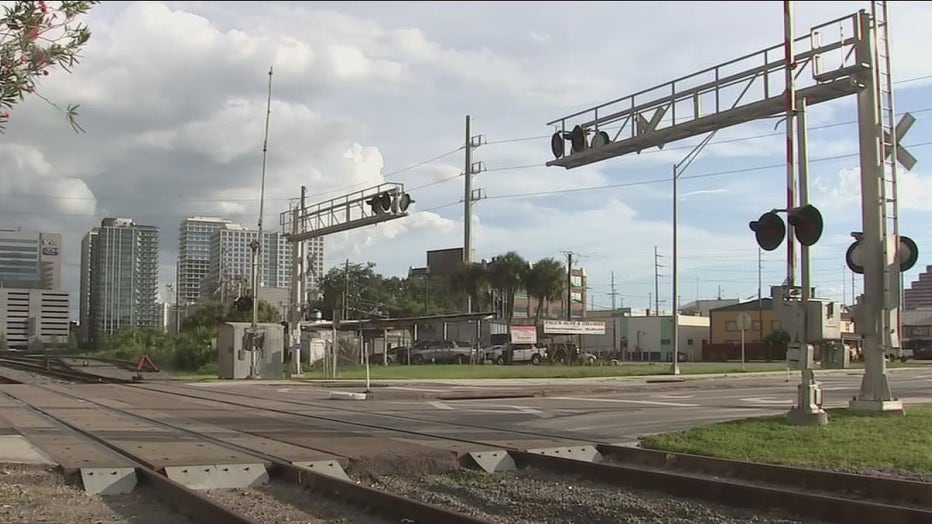Downtown railroad tracks near old flour mill to be removed ahead of Water Street development
TAMPA, Fla. - The old flour mill in downtown Tampa sits vacant and will soon be demolished as developers prepare for the next phase of Water Street. First, the train tracks that used to run to the mill need to be removed.
They run through Channelside, slicing sidewalks and crossing streets. The abandoned railroad tracks will soon be ripped out.
"The flour mill in downtown Tampa has moved to the Port of Tampa, so those railroad tracks are no longer being used," explained Sue Chrzan, public affairs and communications director for the Tampa Hillsborough Expressway Authority.
The trains used to run to the former location of the Ardent Mills flour mill. The 84-year-old relic of the past, along with the tracks, are now a barricade that separates downtown from Channelside. The mill site is set to be developed as part of Water Street, but the Tampa Hillsborough Expressway Authority owns the tracks.
RELATED: Ardent flour mill land becomes part of Water Street development
"We're going to take up the railroad tracks, and we're going to redo the street. So that's a little safer for pedestrians on Kennedy, Jackson and Twiggs," Chrzan said.

The plan follows through on a commitment THEA made to the city 18 years ago. All the signs, gates, lights and 36-hundred linear-feet of track will be ripped out.
"It’s useless. It's just, you know, we're getting congested, so that could be used for other things," said Ethan Lee.
MORE: Ardent Mills celebrates new state-of-the-art facility after decades in downtown Tampa
The work will also reconnect Whiting Street. Instead of ending at a dead end, the roadway will span from downtown to Channelside, connecting the east and west sides of the city.
"That would be great to have more access in and around downtown. So I think that's a great idea," Natalie Calderon shared.
Officials said the project will create a more walkable downtown and help with ease of travel. Construction is expected to start this November and wrap up next Fall, costing about $20 million.

